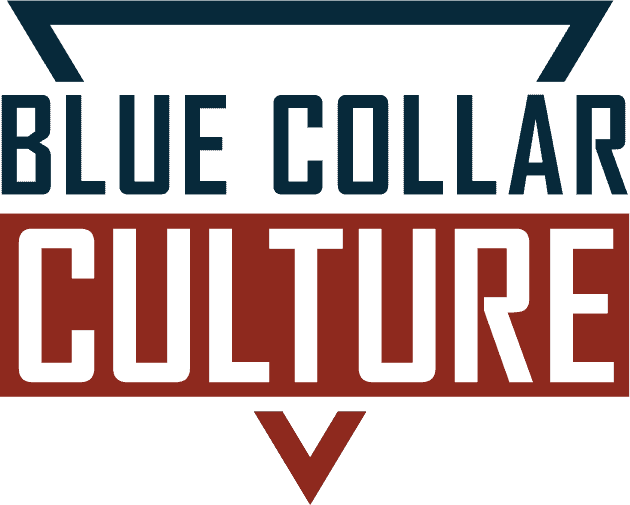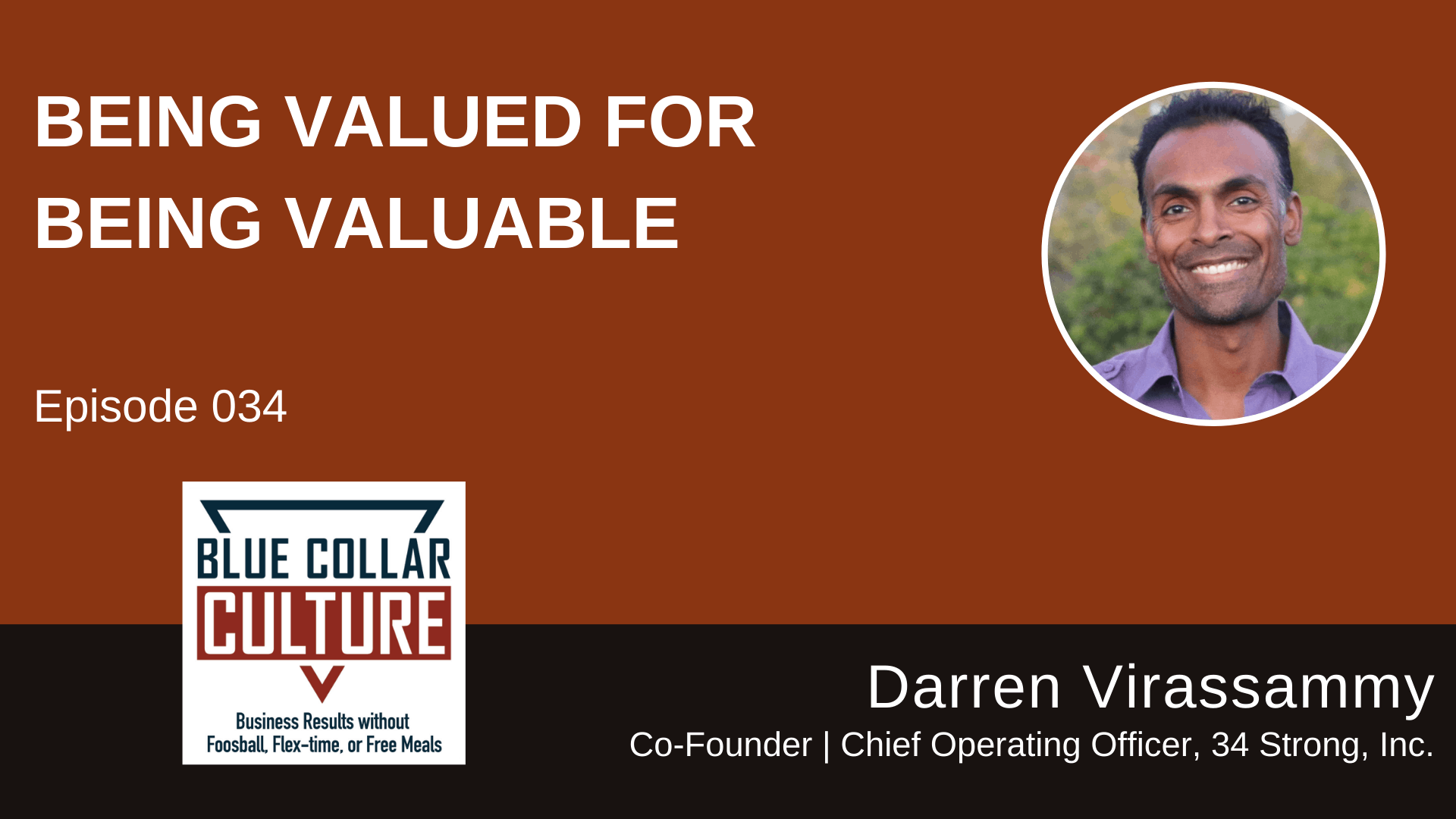In today’s episode of The Blue Collar Culture Podcast we chat with TEDx speaker, and co-founder of 34 Strong, Darren Virassammy. Not only is Darren an entrepreneur, but he’s also a bass guitarist, a dad, and a husband— an overall astounding guy!
Darren is a leader who keeps an eye on his destination and initiates the practical steps to get there through awareness and the ripple effect. He is passionate about long term scalability and commonly steps aside to allow others to take ownership of their zone of genius.
We’ll chat with Darren about the biggest myths in his industry, as well as…
- Client success stories he’s proud of
- How a healthy work environment can drive the financial success of a company
- How disengaged employees lead to disengaged clients— and what to do about it
- Examples of company cultures that have gone from bad to good
- The biggest hurdles to becoming intentional about company culture
- And more
Listen now…

